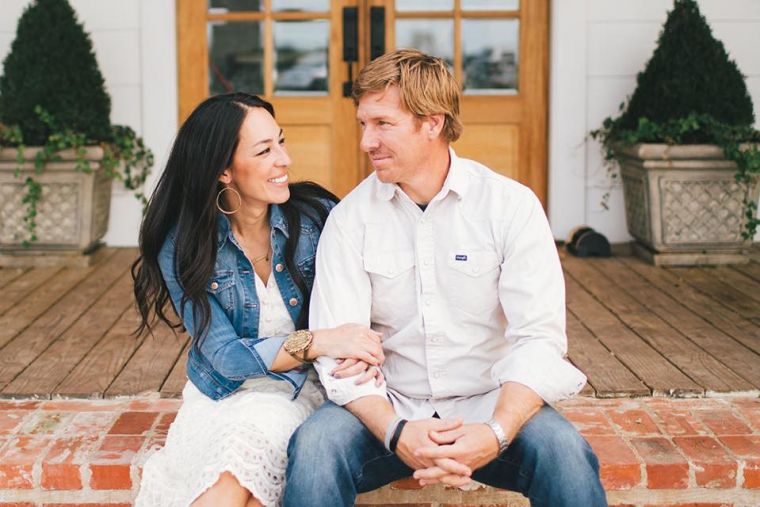Buzzfeed, Fixer Upper, And Gay Marriage: 3 Questions To Ask

Outrage has been sparked on social media in response to a piece by Buzzfeed about the TV stars Chip and Joanna Gaines, and their church's view on same-sex marriage.
The Gaines' are the stars of HGTV's hugely popular show Fixer Upper. They are also devout Christians, which has drawn the attention of one Buzzfeed reporter to their Texas church, Antioch Community Church (ACC), and the views of its pastor Jimmy Seibert. Seibert expressed his firm opposition to same-sex marriage in a sermon on ACC's website. In the sermon he expressed the traditional view that marriage is between a man and a woman, and promoted forms of conversion therapy, which is designed to change a same-sex attracted person's sexual orientation to heterosexual.
The Buzzfeed piece, which was followed up by takes from Cosmopolitan and Jezebel, focuses on Seibert's view and the question of whether the Gaines' hold the same view or not. Various online responses have followed, from both those on the left, outraged by the potential scandal, and from conservatives frustrated by what they seen as an excessive, "bizarre and not newsworthy" attack on views of sexuality now perceived to be bigoted and dangerous.
Here are three questions that the whole debacle raises for the Church and our present culture in general.
A problematic view?
Firstly, from the Church's perspective, it needs to be noted that Seibert does not simply hold a traditional Christian view on sexuality, but extends that to endorsing the far more controversial issue of conversion therapy. The idea that one's sexuality can be 'changed' is decried by secular media, but also by conservatives within the Church. Wesley Hill, for example, is a prominent writer who is same-sex attracted, celibate, and supports the traditional view, but does not encourage conversion therapy, instead focussing on the cost and challenge of singleness and celibacy.
It is important to distinguish between these two significantly different conservative approaches. Neither are culturally popular, but ex-gay ministries can have a harmful legacy, and encourage the perception of Christians as an extreme, brainwashing cult that believes gay people are inherently sinful and must be 'changed'. Ex-gay ministry may be well intentioned, but is rarely so well received, in addition to not finding clear backing in Scripture. In a culture where Christianity is already perceived as backwards and repressive, it doesn't exactly help.
The new civil rights movement?
It's important to understand that much of the heat generated by these debates is drawn from the fact that for many, particularly millennials, same-sex equality is the new civil rights movement of our generation. Just as racial discrimination and segregation had to be fought in the 1960s, so the oppression of the LGBTQ community must be combated today. To many, opposition to same-sex marriage is just another kind of bigotry, no different to racism.
As such, 'anti-Christian' media isn't always part of a cultural 'war on religion'. It's just that many are deeply and morally invested in the fight for gay rights, and opposition to that is therefore perceived as unjust.
Is gay rights the new civil rights? That is a difficult, though crucial question. If it isn't, why not? At current, cultural consensus on the issue seems unlikely, but conservatives and liberals can make an effort toward mutual understanding. Christians need to be aware that in an increasingly post-Christian society, what was once considered traditional or 'mainstream' is no longer so.
Can we agree to disagree?
Many were frustrated by the fact that the Buzzfeed article was so stridently opposed to Christians basically holding Christian values. Granted, the Church across the world has taken different stances on this issue, but most churches retain the traditional view of marriage, a view that until very recently was not considered deeply problematic. Barack Obama was elected to the Presidency in 2008 saying that he did not support same-sex marriage, though in a few years he would change his mind.
A key question for society at large is whether it can make space for voices which do not agree, particularly on the issue of sexuality. Conservative Catholics, Muslims, Jews and others all hold views about how to live in the world which will not line up with whatever the mainstream opinion may be at any given time. Should that be surprising, and why should anyone expect that to change?
Do we truly live in a pluralistic society with the freedom of conscience, religion, and expression wherein diverse views are acceptable? The 2016 US election, and the EU referendum in the UK, have revealed societies which are in sharp disagreement with themselves, and are socially divided into 'echo chambers' in which the views of 'the other' will always seem absurd and dangerous. If our society is to truly progress at all, it must address this division, instead of pretending that one cultural consensus (on politics, sexuality, religion) will eventually just dominate over the other, with no need for dialogue or understanding.
The alarmist furore over views that Chip and Joanna Gaines may or may not have does not suggest that such mutual coexistence will be easy, but it must be possible. A society where no one disagrees on anything would be far more worrying than one where mutual disagreement is found.
Christians shouldn't expect to always feel comfortable in the world, and many of our beliefs may be deemed strange or unacceptable by society's standards. Nonetheless, we can still make an effort to be at peace with everyone, to not indulge in defensive culture war narratives and instead focus on being as loving as we can, to all we meet, and in all that we say.











